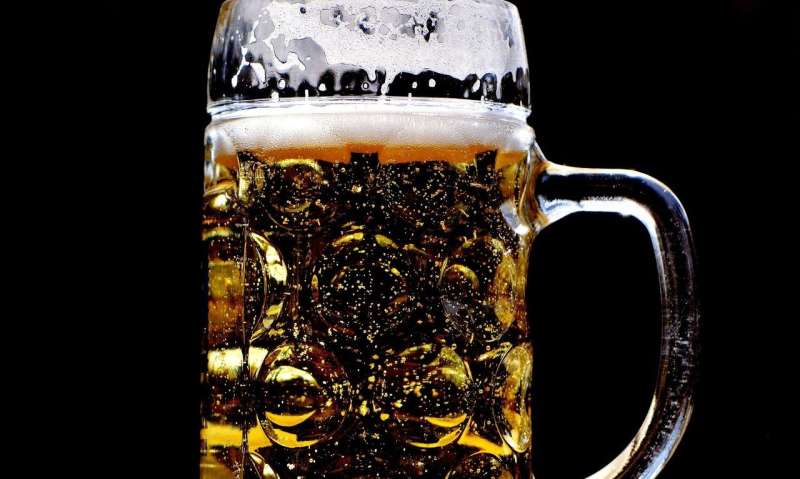Frequent drinking is greater risk factor for heart rhythm disorder than binge drinking

Drinking small amounts of alcohol frequently is linked with a higher likelihood of atrial fibrillation than binge drinking, according to research published today in EP Europace, a journal of the European Society of Cardiology (ESC).
'Recommendations about alcohol consumption have focused on reducing the absolute amount rather than the frequency,' said study author Dr. Jong-Il Choi, of Korea University College of Medicine and Korea University Anam Hospital, Seoul, Republic of Korea. 'Our study suggests that drinking less often may also be important to protect against atrial fibrillation.'
Atrial fibrillation is the most common heart rhythm disorder and raises the risk of stroke by five-fold. Symptoms include palpitations, racing or irregular pulse, shortness of breath, tiredness, chest pain and dizziness.
A prior meta-analysis found a linear correlation between alcohol and atrial fibrillation: risk increased by 8% for every 12 g of alcohol (one drink) consumed per week. But it was not clear which is more important: the total amount of alcohol or the number of drinking sessions.
This study examined the relative importance of frequent drinking versus binge drinking for new-onset atrial fibrillation. The analysis included 9,776,956 individuals without atrial fibrillation who underwent a national health check-up in 2009 which included a questionnaire about alcohol consumption. Participants were followed-up until 2017 for the occurrence of atrial fibrillation.
The number of drinking sessions per week was the strongest risk factor for new-onset atrial fibrillation. Compared with drinking twice per week (reference group), drinking every day was the riskiest, with a hazard ratio (HR) of 1.412, while drinking once a week was the least risky (HR 0.933). Binge drinking did not show any clear link with new-onset atrial fibrillation.
'Our study suggests that frequent drinking is more dangerous than infrequent binge drinking with regard to atrial fibrillation,' said Dr. Choi. 'The number of drinking sessions was related to atrial fibrillation onset regardless of age and sex. Repeated episodes of atrial fibrillation triggered by alcohol may lead to overt disease. In addition, drinking can provoke sleep disturbance which is a known risk factor for atrial fibrillation.'
In keeping with other studies, weekly alcohol consumption was related to atrial fibrillation. There was a 2% increase in the risk of new-onset atrial fibrillation for each gram of alcohol consumed per week. Compared to mild drinkers, those who drank no alcohol, moderate, or high amounts had 8.6%, 7.7%, and 21.5% elevated risks respectively.
Dr. Choi said the protective effect of mild drinking needs to be confirmed. 'It is not clear if this is a true benefit or a confounding effect of unmeasured variables,' he said.
He concluded: 'Atrial fibrillation is a disease with multiple dreadful complications and significantly impaired quality of life. Preventing atrial fibrillation itself, rather than its complications, should be our first priority. Alcohol consumption is probably the most easily modifiable risk factor. To prevent new-onset atrial fibrillation, both the frequency and weekly amount of alcohol consumption should be reduced.'
More information: Yun Gi Kim et al, Frequent drinking is a more important risk factor for new-onset atrial fibrillation than binge drinking: a nationwide population-based study, EP Europace (2019). DOI: 10.1093/europace/euz256
Paulus Kirchhof et al. 2016 ESC Guidelines for the management of atrial fibrillation developed in collaboration with EACTS, European Heart Journal (2016). DOI: 10.1093/eurheartj/ehw210
Susanna C. Larsson et al. Alcohol Consumption and Risk of Atrial Fibrillation, Journal of the American College of Cardiology (2014). DOI: 10.1016/j.jacc.2014.03.048


















